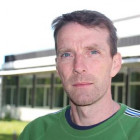Presentation Panel
Going Digital 4.0: New Design Thinking for the Digital Transformation of Higher Education
Date Friday, Nov 25 Time – Room: Charlottenburg III
These experts will share innovative design approaches for initiating and implementing digital transformation projects in higher education. They will show best practices of early adopters and discuss triumphs and issues of moving learning and training online.
If your organisation is about to embark on a digital transformation project and you want to learn about the latest methodologies, then this session is for you.

Talia Kolodny
Senior Director, EMEA, Engageli, Israel
Talia brings many years of experience working with leading edtech organizations to promote equity and access to education on a global scale. Before joining Engageli, she was Head of Partner Learning and Development at Coursera, where she established and managed an engaged community of practice for top universities and companies worldwide. In all of her EdTech roles, she brought learning science insights and best practices for pedagogy-enhanced technology development, working with leading companies and top universities worldwide. Based in Israel, Talia has a life-long passion for education and social impact. She has a MA in Political Science from the Hebrew University.

Jordan Seke
CRM Officer & CX Specialist, University of the Witwatersrand, Johannesburg, South Africa
The Pan-Africanist and a global Active Citizen. He is a servant of humanity. Jordan prides himself as an investor in people and businesses. He is above all a caring husband, a daddy and a mentor. He is a certified leadership coach and a volunteer who strives to inspire and to empower others.
Links

Thomas Ahler
Special Consultant, UCL University College, Denmark
Thomas Ahler is coordinator and special development consultant in the Unit for Project and Development in the Department of IT and Learning Technology at UCL University College in Odense, Denmark. He primarily act as program and project manager in projects on digital educational development and transformation.
Thomas, a trained physiotherapist since 1998, qualified as associate professor in 2012 in the Department of Physiotherapy.
He has worked with and managed several projects in the realm of digitally supported and enhanced teaching and learning. Currently he is the program manager for a three-year digital transformation program called UCL Program for Education 4.0.
Links
Moderator

Lourdes Guàrdia
Deputy Dean at Psychology and Education, Universitat Oberta de Catalunya
Deputy Dean of Teaching and Associate Professor at the Faculty of Psychology and Education Sciences at the Open University of Catalonia (UOC). She was the academic director of the Master’s degree in Education and ICT (2012-2020). Researcher of the Edul@b Research Group. Her main areas of research are Learning Design, Technology Enhanced Learning, Educational Technology, Teacher Training, e-Portfolios, e-Assessment and teaching models related to the use of digital technologies. She has participated and coordinated various research and innovation projects both nationally and internationally. Chair of Curriculum Development & Course Design Area of expertise within the European Association of Distance Teaching Universities.
Links
Education 4.0 - Our First Steps: Principles and Programme design, Thomas Ahler
This presentation shares the experiences from creating an Education 4.0 development programme at UCL University College, Denmark.
Our programme strives to cultivate new and innovative teaching and learning ideas, in the context of technologies related to Industry 4.0 & Education 4.0. The key premise of the programme is that the innovative and groundbreaking technologies that push and propel society and the industries forward must (and will) impact higher education.
Through five programme tracks and six design principles, the programme enables a "bottom-up" approach to experiment boldly and curiously with elements of new technologies and new learning approaches.
Based on our work so far, we will strive to answer three questions in this presentation:
- How the core values of co-creation can be embedded in a development programme that seeks to disrupt and innovate the status quo?
- What governance structures did we apply in the programme to ensure both organisational and structural anchoring and stakeholder ownership?
- In which ways do the principles of design thinking support creativity, innovation and boldness in the programme?
This presentation will be of particular interest to teachers, leaders and students who are directly involved in managing and facilitating digital transformation of higher education.
Overview
- Get inspiration to creating “bottom-up” co-creation projects/programmes that address the need for digital transformation of higher education.
- Hear about six design-principles that can guide higher education on the road towards Education 4.0.
- Learn about the UCL Programme for Education 4.0.
See the Systems: Designing Digital Transformation
This presentation will explore several approaches to planning and progressing digital transformation projects in higher education.
Higher education institutions offer structure, process, and systems. How can we approach digital transformation that tests the current ways of knowing and working while engaging with those who will flourish in the new space? How do we plan for emergence and uncertainty while expanding our ways of knowing?
Those involved in digital transformation projects make sense of their role and the impact of the intended transformation through their own lens. Identifying system boundaries creates opportunities for inclusion, as well as marginalisation, through boundary identification. Identifying a process to initiate change that takes into consideration different perspectives, interdependencies and unintended impact helps to consider the emergent system.
Human-centered design is an interactive systems development approach that aims to leverage change by making systems more useful by and for the users, their needs, and requirements. How can we apply design approaches to digital transformation projects? How do we measure transformation?
Participants will be guided through high-level considerations for large digital transformation projects and will be given the opportunity to reflect on their own change initiatives. One example of a digital transformation project in this session relates to building an online learning ecosystem at the University of Leeds. Join in the conversation to explore the possibility of intentional design for your initiatives.
Overview
- Identify differences between current and future approaches to digital transformation.
- Reflect on ways your organisation has undergone digital transformation.
Is Digital Transformation Effective in the Teaching and Learning Space?, Jordan Seke
This presentation seeks to describe the change of conditions that digital innovation is directly making in education. Jordan Seke also examines the impact of digitization beyond the scope of teaching and learning and explores innovation pathways that several early adopters have taken across multiple industries within a global economy.
The use of cutting-edge technology and innovation accelerated by the global pandemic of Covid-19. But is an increase in digitisation critical for education and training to ensure economic recovery in the fourth industrial revolution?
Changes are hard, and computerised ones even more. Years of examination on changes has shown that the achievement rate for these endeavours is reliably low: under 30% succeed.
Is digital transformation the expected change education wants or desires?
Overview
- Analyse the status of digital transformation in Teaching and Learning.
- Identify the factors that facilitate or hinder innovation adoption in education.
- Encourage digital culture with improved collaboration in the education sector.
Creating Human-Centered Global Classrooms with Intentional Technology, Talia Kolodny
The world needs digital learning tools that bring us closer together, create meaningful experiences, and affirm our identity and belonging. Technology is opening a new world of opportunity in the digital learning space. Anyone can learn from the very best minds and experts worldwide, from any place in the world.
As we develop and implement new tools, we must keep the ultimate goal in mind: to provide a meaningful and effective learning experience to all learners.
In this session we will share insights and strategies from our experience working with academic institutions and companies around the globe on how to design flexible learning experiences that promote mobility, equity, and innovation.
Overview
By the end of the session you will know more about:
- Creating inclusive classrooms with a focus on authentic human connections.
- How to build global communities by blurring the boundaries between synchronous & asynchronous learning.
- How to make data-driven decisions and select intentional technology to support your learning objectives